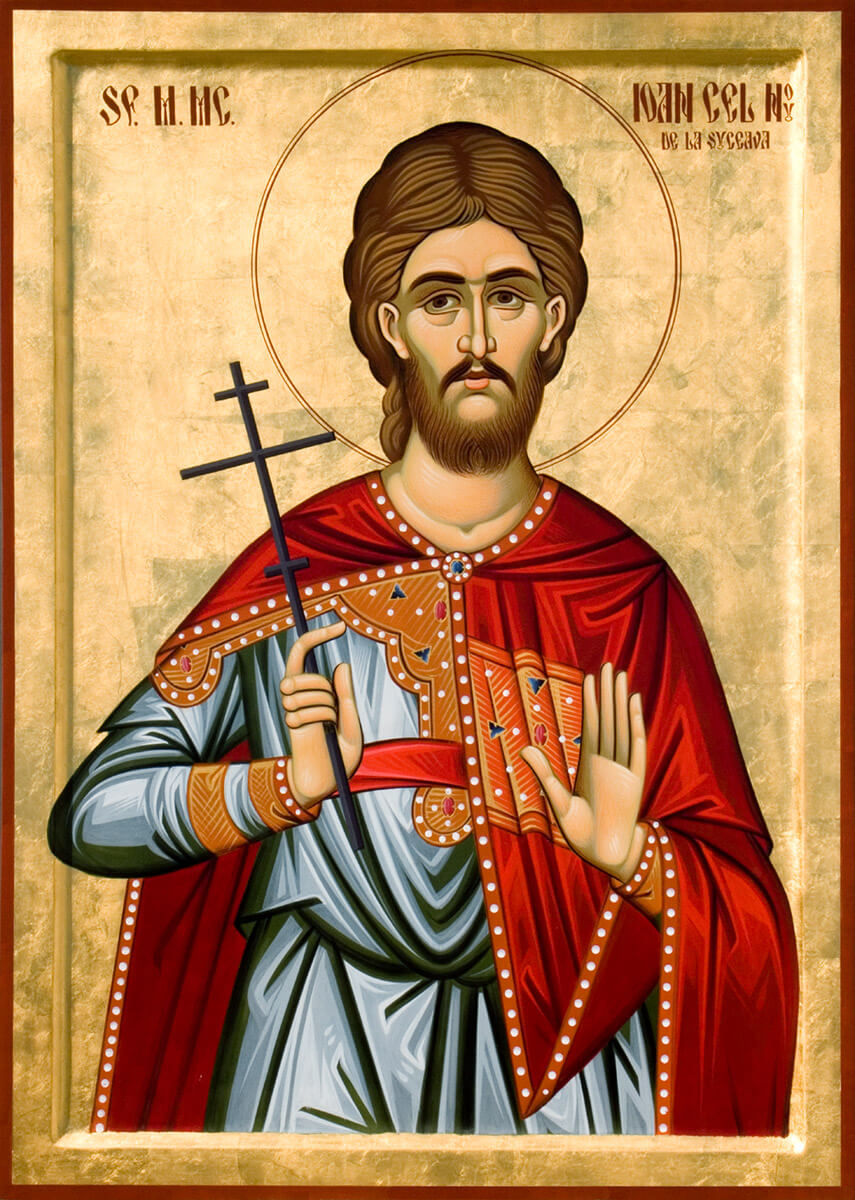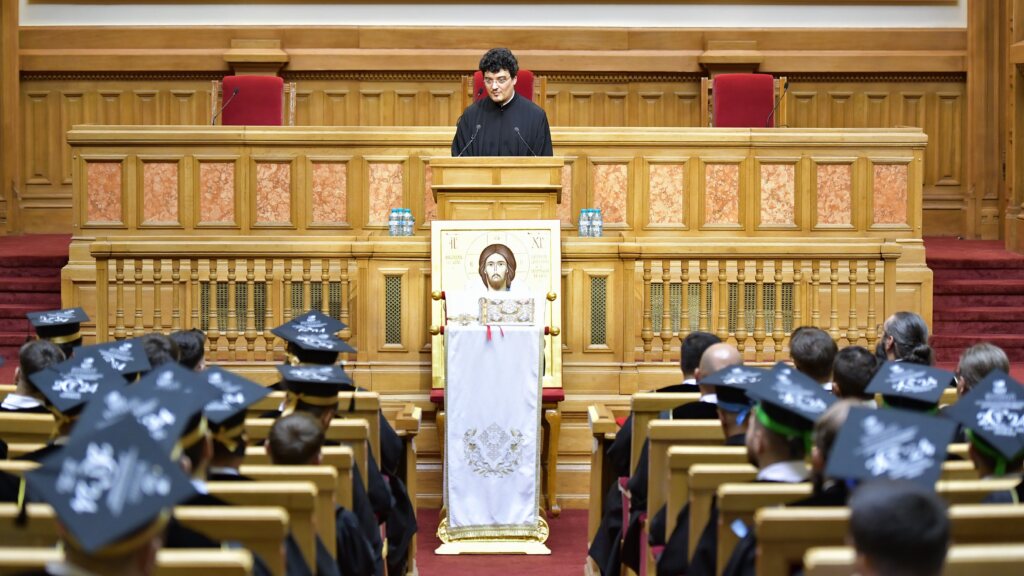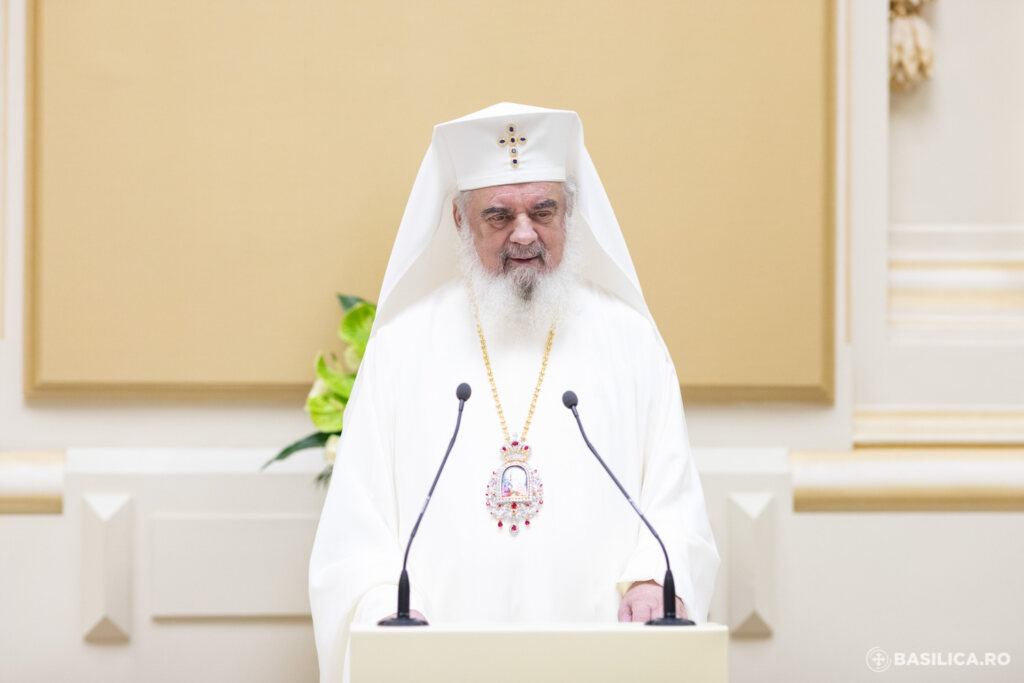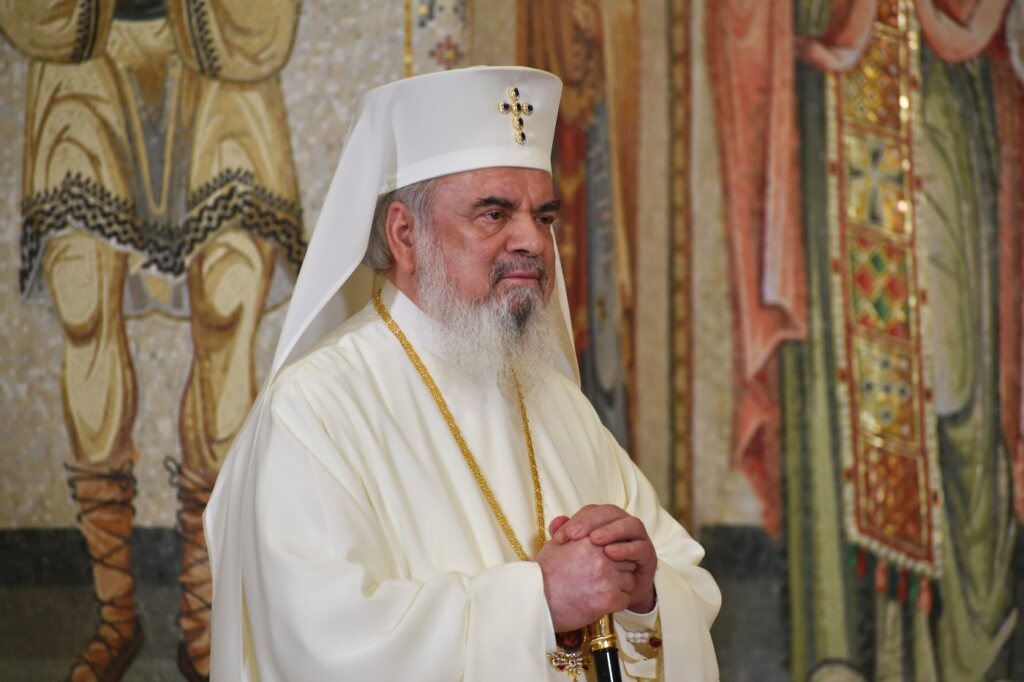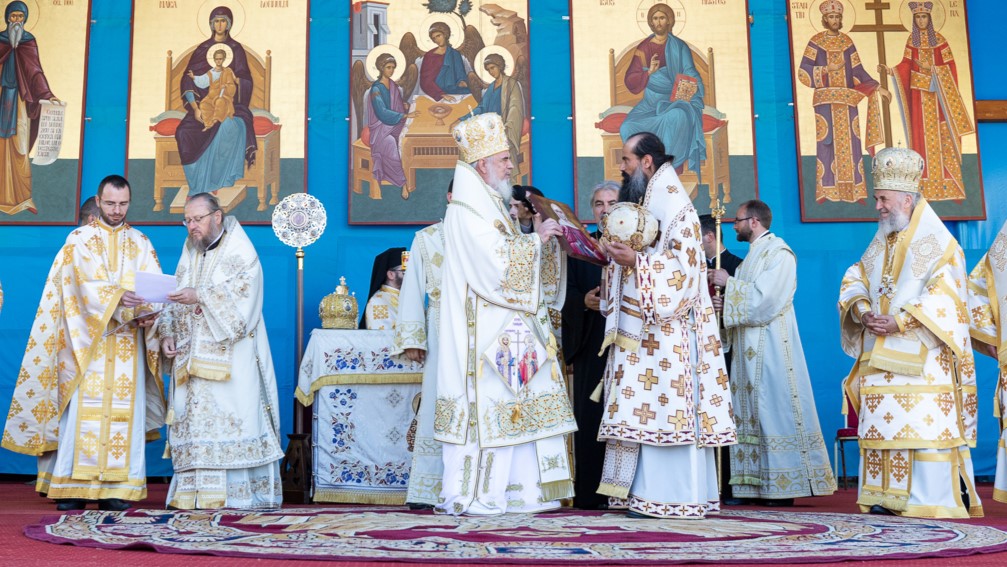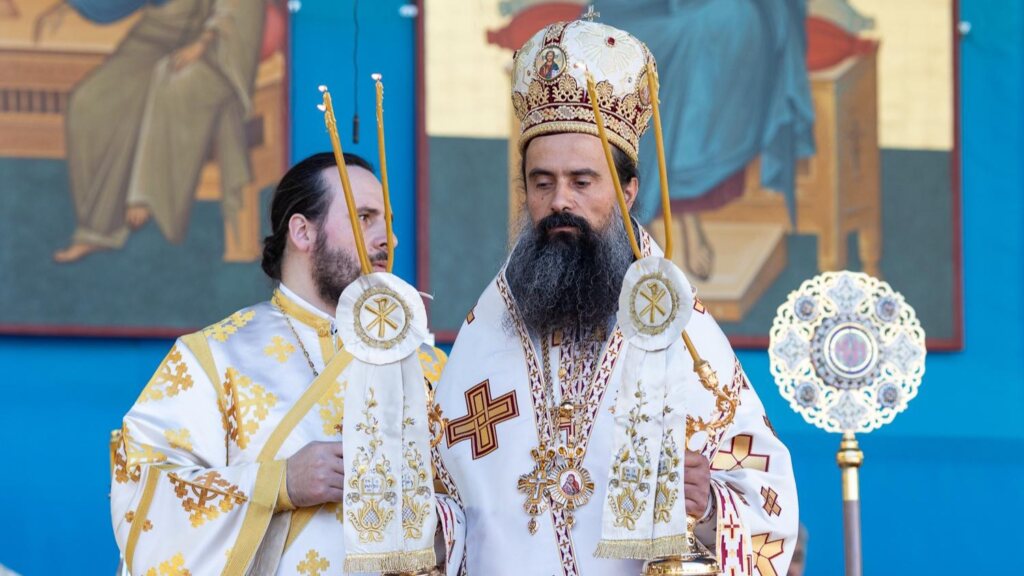Orthodox Calendar June 2
Great Martyr John the New of Suceava
The Holy Great Martyr John the New of Suceava lived in the fourteenth century in the city of Trebizond. He was a merchant, devout and firm in his Orthodoxy, and generous to the poor.
Once, he happened to be sailing on a ship while pursuing his trading activities. The captain of the ship was not Orthodox, but got into an argument about the Faith with St John.
Having been vanquished by the saint’s words, the captain resolved to make trouble for him when they got to Belgorod. During the ship’s stay at Belgorod, at the mouth of Dniester River, the captain went to the city ruler, a fire-worshipper, and suggested that on his ship was a studious man who also desired to become a fire-worshipper. The city ruler invited St John to join the fire-worshippers and renounce his faith in Christ.
The saint prayed secretly, calling on the help of Him Who said, “When they shall lead you, and deliver you up, take no thought beforehand what you shall speak, neither do you premeditate; but whatsoever will be given you in that hour, speak that, for it is not you that speaks, but the Holy Spirit” (Mark 13:11).
And the Lord gave him the courage and understanding to counter all the claims of the impious and firmly confess himself a Christian. After this, the saint was so fiercely beaten with rods that his entire body was lacerated, and the flesh came off in pieces. The holy martyr thanked God for being found worthy to shed his blood for Him and thereby wash away his sins.
Afterwards they put him in chains and dragged him away to prison. In the morning the city ruler ordered the saint brought forth again. The martyr came before him with a bright and cheerful face. The intrepid martyr absolutely refused to deny Christ, denouncing the governor as a tool of Satan. Then they beat him again with rods, so that all his insides were laid bare.
The gathering crowd could not bear this horrible spectacle and they began to shout angrily, denouncing the governor for tormenting a defenseless man. The governor, having the beating stopped, gave orders to tie the Great Martyr to the tail of a wild horse to drag him by the legs through the streets of the city. Residents of the Jewish quarter particularly scoffed at the martyr and threw stones at him. Finally, someone took a sword and cut off his head.
St John’s body with his severed head lay there until evening, and none of the Christians dared to take him away. By night a luminous pillar was seen over him, and a multitude of burning lamps. Three light-bearing men sang Psalms and censed the body of the saint. One of the Jews, thinking that these were Christians coming to take up the remains of the martyr, grabbed a bow and tried to shoot an arrow at them, but he was restrained by the invisible power of God, and became rigid.
In the morning the vision vanished, but the archer continued to stand motionless. Having told the gathering inhabitants of the city about the vision and what was done to him by the command of God, he was freed from his invisible bonds. Having learned about the occurrence, the ruler gave permission to bury the body of the martyr in the local church. This occurred between the years 1330 and 1340. There is some question about the year of the saint’s martyrdom. St Nicodemus of the Holy Mountain gives the year as 1642, while others say it was 1492.
The captain who had betrayed St John repented of his deed, and decided secretly to convey the relics to his own country, but the saint appeared in a dream to the priest of the church, and prevented this. After seventy years the relics were transferred to Sochi, the capital of the Moldo-Valachian principality, and placed in the cathedral church.”
Another detail from the life of St. John the New: “The angels of the Lord do not want to be worshipped. When an angel showed St. John the new Paradise in Heaven with all its marvels, St. John fell at the feet of the angel to worship him. But the angel did not allow that, saying: Do it not, for I am thy fellow servant, and of thy brethren the prophets, and of them which keep the sayings of this book: worship God (Rev. 22:8-9). Yea, we worship God alone.”
And the appearance of St. John after his martyrdom and his Holy Relics: “An Orthodox priest in the city saw the New Martyr in a dream. John asked him to bring his body to the Church. There the Holy Relics remained for many years until the Ruler (Voievod) of Moldova Alexander the Good (Alexandru cel Bun) at the request of Metropolitan Joseph brought them to his capital city of Suceava on the Feast of the Nativity of St. John the Forerunner, June 24, 1402. We may note the coincidence of the names and the martyr’s heroism of both these great followers of Christ.
In 1685 the Relics of St. John were taken by the Polish King Jan Sobieski to Stryy in Ukraine. They were later transferred to the Basilian Monastery in Zhovkva, also in Halychyna. The Austrian Emperor Joseph II returned them to Suceava in 1783. The Monastery that bears his name was the site of huge pilgrimages on the day of commemorating his martyrdom. Many people came from Bukovyna.
Troparion – Tone 4
You governed your life well on earth, working charity and incessantly praying with tears, you who suffered contests with courage, rebuking the Persian unbelief. Therefore you made yourself strong for the Church and are the boast for the Christians, O John, you shall ever be remembered.
Saint Nikephoros the Confessor, Patriarch of Constantinople
Saint Nikephoros (Nikēphóros) was a dignitary at the court of the Empress Irene (797-802). After embracing monasticism, he became widely known for his piety. He assumed the Patriarchal Throne of Constantinople in 806 and became a zealous defender of the holy Icons. In 815, the Iconoclast Emperor Leo the Armenian (813-820) exiled him to Prokonnis, where he fell asleep in the Lord in 828.
Saint Nikephoros left behind three writings against Iconoclasm.
In 846, the relics of Patriarch Nikephoros were returned to Constantinople and placed in the Great Church of Hagia Sophia for one day before being transferred to and enshrined in the Church of the Holy Apostles.
Troparion — Tone 3
Through your inspired confession, / you gained victory for the Church, holy Hierarch Nicephorus. / You suffered unjust exile / because of your reverence for the icon of God the Word. / Righteous Father, entreat Christ our God to grant us His great mercy

5th Sunday after Pascha (of the Samaritan Woman)
Gospel (John 4:5-42)

